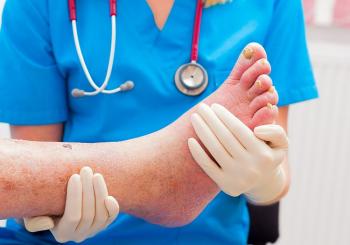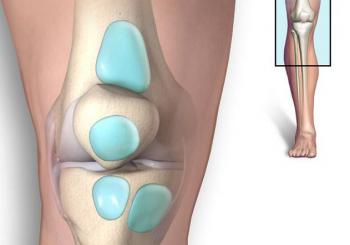
What Factors Affect Your Blood Cholesterol Levels?
Have you been struggling to lower your cholesterol without medications but are running out of luck? Many factors determine whether your blood cholesterol level is too high. Some risk factors you can't change, but many you can.
Here, you can take a look at your high cholesterol risk factors to see if you can adjust any of your lifestyle habits. With diligence, you may be able to lower your cholesterol numbers by 10% or more with a few changes in your daily routine.
Lifestyle and other changes you can make to help lower cholesterol
- Diet: Diet is one of the top changes you can make, in addition to weight loss. Not all fat is bad for you. However, there are components in the foods you eat that can increase your blood cholesterol level: saturated fat and trans fat.
Saturated fat raises your cholesterol level more than anything else in the diet. Reducing the amounts of saturated fat you eat is an important step in reducing your blood cholesterol levels. Eating too much of the "bad" fats can elevate your risk for heart disease. Research has now shown that cholesterol is primarily made by the liver in our bodies from bad fats.
- Saturated fat is a type of fat found mostly in foods that come from animals. Items with saturated fat include red meat, poultry and high fat dairy products. Saturated fat can raise your LDL, or "bad" cholesterol.
- Trans fats (partially hydrogenated oils) raise your bad (LDL) cholesterol levels and lower your good (HDL) cholesterol levels and can be found in margarines, fried foods, and commercially prepared baked goods like cake and donuts.
Cholesterol comes from animal products, such as eggs, meat, and cheese. In general, one egg per day does not elevate your heart risk (like a heart attack, stroke or heart disease). But if you currently have heart disease or diabetes, or are at risk of heart disease, limit your consumption of eggs to no more than 3 eggs per week.
- Talk to your doctor about egg consumption based on your level of risk factors.
- Remember: lots of other foods that are often paired eggs, like bacon, fried potatoes, cheese, oil, butter and cream contain bad fats, so while you may be able to enjoy eggs, think twice about your side dishes.
- Use only the egg whites if you need to skip cholesterol all together in eggs, or use an egg-substitute. Egg whites still contain protein which is a great way to start your morning.
- Weight: Excess weight tends to increase blood cholesterol levels. If you are overweight and have high blood cholesterol, losing weight may help you lower it.
- Exercise: Regular physical activity (at least 30 minutes, 5 times per week) may help to lower LDL-cholesterol and raise desirable HDL-cholesterol levels. Also, lifestyle changes known to increase HDL, such as exercise, quitting smoking or eating a more healthful diet have been shown to lower the risk of heart attacks.
- Medicines: Drugs such as niacin, gemfibrozil and statins (especially simvastatin and rosuvastatin) can have a positive effect on HDL numbers, but it's not known if raising HDL alone will lower the risk of heart attacks and strokes. Studies of several medicines used to increase HDL levels were stopped early because they didn't reduce the risk of heart attacks. It's not recommended to take these medicines solely to raise your HDL.
Anabolic steroids such as testosterone may be associated with reduced HDL numbers.
- Alcohol: Alcohol intake may increase HDL-cholesterol, your "good" cholesterol.
- Some studies suggest a modest amount of alcohol may be beneficial for the heart. Modest usually means no more than one drink per day for women and men over 65 years; and two drinks per day for men under 65 years of age.
- Drinking too much alcohol can damage the liver, cause weight gain and lead to other health problems. Because of these risks, you should not start drinking alcoholic beverages solely to raise HDL.
- Stress: Over the long term, stress has not been shown to raise blood cholesterol levels. The real problem with stress may be how it affects your habits. For example, when some people are under stress they console themselves by eating fatty foods. The saturated fat and cholesterol in these foods probably cause higher blood cholesterol, not the stress itself.
There are some things you simply can't control. In fact, some people who work very hard to lower their cholesterol levels, or even take potent medication to lower cholesterol, still may have abnormal lab results.
- Family history and genetics: Your genes partly determine the amount of cholesterol your body makes, and high blood cholesterol can run in families.
- Unfortunately, nothing can be done to adjust your genes, but awareness of high cholesterol in your family can help you to be more vigilant in your lifestyle habits and medical check-ups.
- Be sure to alert your doctor to your family history of high cholesterol or heart disease.
- Risk is increased in those with a family history of early heart disease (heart attack or sudden death): younger than 55 years for men and younger than 65 years for women.
- Some people may have a greater risk for heart disease due to genetics that make them prone to very high cholesterol levels.
- Age and gender: Before menopause, women have total cholesterol levels that are lower than those of men the same age. In general, the risk for heart disease and high cholesterol levels increases as you age.
- Risk is increased in men aged 45 years and over, and in women aged 55 years and over. Men, at all ages, have a higher risk for heart disease than women.
- Pregnancy raises blood cholesterol levels in many women, but blood cholesterol levels should return to normal about 20 weeks after delivery.
- In women, menopause often causes an increase in their LDL-cholesterol levels.
Risk Factors for Heart Disease
While high blood cholesterol (high total cholesterol and high LDL-cholesterol) and low HDL cholesterol are significant risk factors for heart disease, there are also a number of other contributing factors, many of which can be managed or changed:
- cigarette smoking
- uncontrolled high blood pressure
- high C-reactive protein
- diabetes, both type 1 and type 2
- obesity and being overweight, weight gain
- kidney disease
- peripheral arterial disease
- lack of exercise
- poor diet
- excessive alcohol use
- family history of heart disease at young age (at age < 55 years in a father or brother, and < 65 years in a mother or sister)
- being a male
- older age in general
- stressful lifestyle
Another factor that influences your risk of heart disease is where your body stores excess fat. If you have an apple-shaped body with most of your fat around the stomach, you are at a greater risk of heart disease than if your body is pear-shaped, with most of your fat around your hips. Generally, men carry their fat around the stomach, whereas women carry it on the hips and thighs.
Bottom Line
Talk to your doctor about all of your risk factors and what you can do to reduce your chance of heart disease. Often, the actions you take to control one risk factor help reduce others as well.
- For example, losing weight helps to reduce your blood cholesterol levels and high blood pressure, and helps to control diabetes.
- Regular physical activity can help you lose weight as well as improve the fitness of your heart and lungs and may lower stress, which also can help lower your risk of heart disease.




